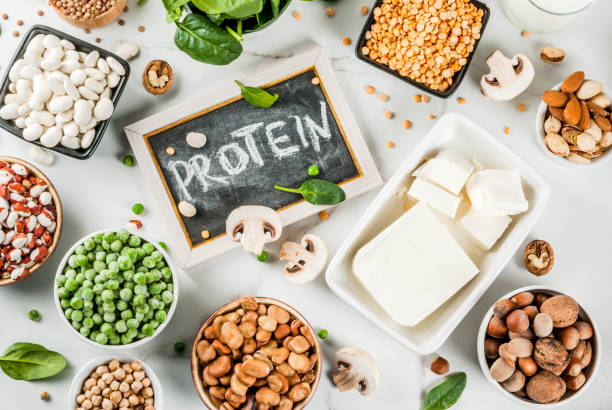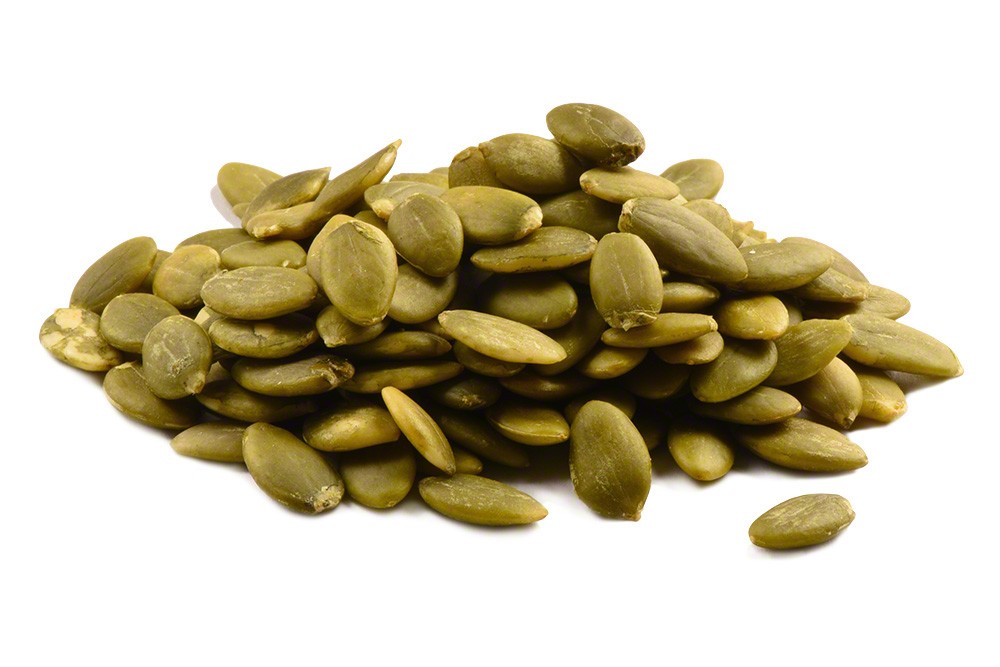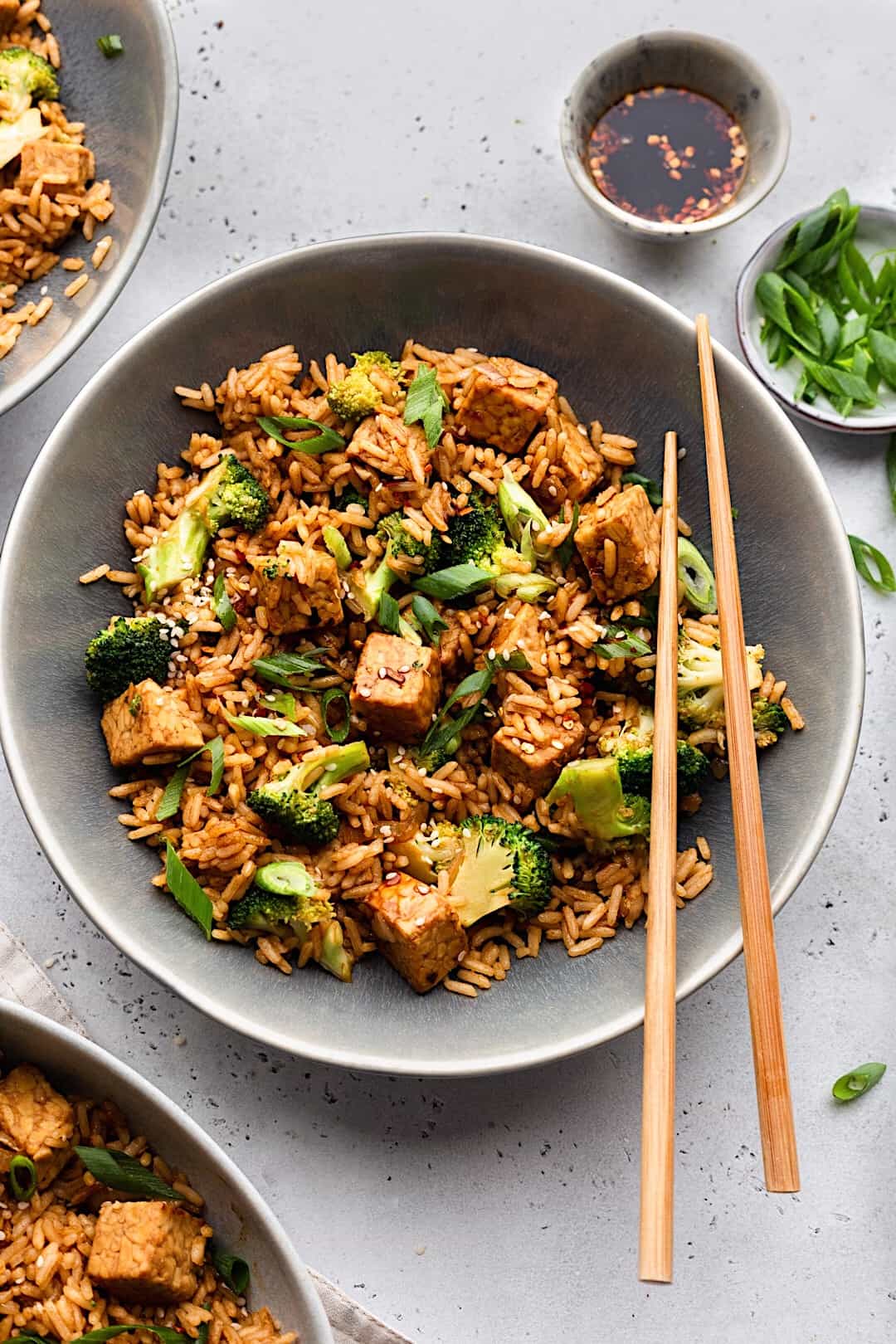Flex Your Greens: Muscle Building with Vegan Proteins
This article explores the vibrant world of plant-based nutrition, focusing on the power-packed proteins that can help vegans and vegetarians build muscle just as effectively as their carnivorous counterparts. From the leafy to the leguminous, we’ll take a deep dive into the best vegan proteins that not only support muscle growth but also improve overall health. Plus, we’ll sprinkle in some savvy tips and the secret weapon of a notepad to track those gains!
WN
By Workout Notepad
November 20, 2023

Introduction to Plant Power
Embarking on a journey of strength and well-being doesn’t necessitate the consumption of animal products; the plant kingdom is rife with powerful allies poised to support muscle growth and enhance athletic performance. With burgeoning research in the field of sports nutrition illuminating the efficacy of vegan proteins, it’s becoming clear that a plant-based approach can fuel the body just as robustly as traditional animal-based proteins. Studies now underscore the mycoprotein from fungi as a capable contender, matching the muscle-building prowess of its animal-derived counterparts during resistance training. Skepticism may still thrive along the peripheries of bodybuilding forums and gyms, but the data paints a convincing picture: muscle synthesis, mass, and strength can ascend to great heights on a plant-based regimen, inviting athletes and fitness enthusiasts to rethink the sources of their nutritional power.
As the appetite for sustainable and health-conscious alternatives surges, the wealth of options available to plant-based athletes has never been more lush and varied. Think beyond the ubiquitous soy and delve into a veritable buffet featuring the likes of quinoa, hemp seeds, and the underrated yet brawny pistachio. These sources of vegan protein not only align with ethical and environmental considerations but come loaded with a host of other macro and micronutrients, beneficial for overall health, recovery, and muscle fortification. This journey into the heart of plant-based muscle-building is about anticipation, discovery, and the excitement of unearthing the latent power within nature’s bounty. Conquering fitness goals need not be a mundane endeavor dictated by routine, but a gastronomic adventure that satisfies the palate as much as it empowers the body. Ready to unearth the muscle sculpting secrets of vegan proteins? The following section will serve as your guide to ‘The Mighty Ten: Top Vegan Proteins for Muscle,’ unraveling the power packed in ten plant-based titans of the muscle-building world.
The Mighty Ten: Top Vegan Proteins for Muscle
Embarking on the journey of muscle building with a vegan lifestyle doesn’t mean compromising on your gains; instead, it unfolds a myriad of nutrient-rich, muscle-friendly proteins that can perfectly cater to your body’s needs. At the forefront is spirulina, cited as a blue-green algae with a protein punch rivaling traditional meats. Next in line are a diverse variety of seeds and kernels—think quinoa, pumpkin, sunflower, and chia seeds—an incredible source of not just protein but other vital nutrients that support overall health and muscle recovery. Peanut butter steers the vegans’ ship with its healthy fats and protein content, making for an indulgent yet nutritious treat.
Following these protein titans are nutritional yeast and a vast battalion of nuts and peanuts—almonds, walnuts, and pistachios—which boast a high protein profile in addition to providing essential fatty acids and fibers. Don’t underestimate the humble beans and legumes, as chickpeas, lentils, and black beans come loaded with protein that’s vital for muscle synthesis. For those chilly mornings, porridge oats serve as a comforting canvas to which many of these proteins can be added. Versatile and understated, tofu and tempeh stand tall as the muscle sculptors favored in vegan cuisine, while assorted vegetables like broccoli and spinach offer more than just minerals — they include necessary proteins too. Last but not least, vegan protein powders provide that extra boost when whole foods just aren’t enough or when convenience is paramount. With this armory of plant-based proteins, the body is well-equipped to endure the demands of muscle building, inviting fitness enthusiasts to explore the strengths of a plant-driven diet. The next section will expand upon the miracle of spirulina and its profound benefits in this green-tinted quest for strength and fitness.
Spirulina: The Blue-Green Muscle Machine
Spirulina, a cyanobacteria teeming with protein and essential nutrients, stands tall in the forest of superfoods, making ripples through the fitness world, particularly in vegan bodybuilding. Its illustrious green hue harbors a wealth of benefits for bolstering muscle recovery and amplifying gains, rendering it an exceptional complement to any muscle-building regimen. Amidst the pantheon of vegan proteins, spirulina distinguishes itself with its high protein quotient—which is more than 60% of its dry weight—and the presence of all essential amino acids, making it a complete protein. This, alongside the antioxidant properties sourced from its rich beta-carotene content, places spirulina in the limelight for athletes and bodybuilders striving for peak performance and prompt recovery post high-intensity training. As such, it’s not merely an adjunct but may well constitute the centerpiece of a muscle-focused plant-based diet.
Incorporating spirulina into one’s nutritional routine requires attention to origin, purity, and dosage, to harness its full potential while mitigating risks. Spirulina can be introduced into the diet in various forms—powders, tablets, or integrated within recipes—as a versatile, nourishing additive to smoothies, energy bars, or health shakes. For fitness enthusiasts inclined towards meticulous record-keeping and optimization of workout routines, akin to users of the Workout Notepad and Gym Notebook Replacement Resources, the measurement and monitoring of spirulina intake may become yet another valuable dataset for gauging performance enhancements and nutritional balance. Moreover, consulting a healthcare professional before embarking on a focused spirulina supplementation could foster a tailored approach that aligns with the individual’s specific physiological needs and fitness goals. With proper counsel and application, spirulina can unlock robust pathways to achieving augmented muscle strength and endurance. Transitioning forward, another category of potent plant allies emerges in the form ydk of seeds and kernels, promising to fortify the foundation of vegan muscle-building with their compact and dense nutritional profiles.
Seeds of Strength: Unlocking the Power of Kernels

assorted seeds and kernels
As diminutive as they are, seeds and kernels pack a massive punch when it comes to muscle-building nutrition. These unassuming food items are densely loaded with essential nutrients that play a crucial role in the development of muscular strength. Take chia seeds, for example, small specks that possess a high concentration of fiber, omega-3 fatty acids, and a quality source of protein—all vital elements for muscle repair and growth. Hemp seeds, much lauded for their complete protein profile, gift the body with all essential amino acids, making them a game-changer in vegan muscle nutrition. They’re not just a supplement to a meal; seeds are foundational staples that provide the building blocks for a strong, healthy body.
Moving beyond chia and hemp seeds, the lesser-celebrated kernels such as pumpkin, flax, sunflower, and sesame seeds bring their nutritional might to the table. Pumpkin seeds deliver a boost of iron, magnesium, and zinc, all minerals important for improved strength and endurance. Flax seeds, rich in soluble fiber and omega-3 fatty acids, not only promote muscle health but also aid in digestion and inflammation—a formidable combination for those looking to maintain a rigorous workout regimen. Sunflower seeds, high in unsaturated fats and vitamin E, and calcium and copper-rich sesame seeds round out the arsenal with their own unique benefits. As we transition from this remarkable array of seeds to the next section, the muscle-sculpting journey continues with beans and legumes; these foods, far from being modest sides, are poised to become the champions of your plant-based fitness platter.
The Bean Blueprint: Legumes as Muscle Fuel
Beans and legumes harness the impressive power of plant protein, making them a valuable asset in the vegan athlete’s dietary arsenal. Their rich profile of amino acids, often comparable to that of meat, supports muscle repair and growth—the fundamental process in bodybuilding. Not just secondary to animal proteins, beans boast a low fat content and high fiber levels, aiding in digestion and sustained energy release crucial for long training sessions. They’re also a prime source of iron and micronutrients often overlooked in muscle development but essential for oxygen transport and overall vitality. By transitioning beans from an occasional side to the cornerstone of post-workout meals, athletes can enjoy a variety of dishes from hearty stews to bean-based pastas that promote sustainable muscle growth while keeping the diet versatile and environmentally conscious.
Embracing the blueprint that beans provide for muscle fuel not only complements the training regime but seamlessly paves the way for integrating other plant-based protein heroes into one’s diet. As we shift the spotlight onto tofu and tempeh, the soy-derived stalwarts of vegan muscle-building, we’re set to explore innovative culinary creations. These ingredients morph into delicious meals pairing perfectly with legumes, enhancing the nutritional profile and bringing us closer to peak physical form. With the creativity in the kitchen and a little know-how on combining plant proteins effectively, every meal has the potential to become both a gustatory pleasure and a muscle-building powerhouse, painting a green path to achieve that sculpted physique successfully.
Tofu and Tempeh: The Muscle Sculptors

tofu and tempeh dishes
Harnessing the plant-based prowess of tofu and tempeh might just be the game-changer in any muscle-building regimen. Revered in vegan and vegetarian circles alike, these soy-based staples are powerful allies in the quest for a chiseled physique. Tofu, with its high protein content and versatile texture, can be the protein-packed cornerstone of any meal. From scramble for breakfast to marinated steaks on the dinner plate, this soybean curd is adept at taking on flavors and providing that much-needed muscle synthesis fuel. Tempeh, on the other hand, is a fermented favorite known not only for its macro benefits but also for its role in gut health, which is vital for overall well-being and efficient nutrient absorption. Its firmer texture and richer flavor profile make it an excellent meat alternative for hearty dishes that satisfy the taste buds and the body’s protein requirements.
Now let’s delve into the culinary art of incorporating these powerful plants into your meal prep. Tofu can be transformed with a simple press and marinade, soaking up savory sauces that make it a delectable addition to stir-fries and curries. Meanwhile, tempeh’s nutty flavor is amplified when lightly browned in a skillet, making it a robust addition to bowls and wraps. Recipes abound that allow these ingredients to shine, each offering a dynamic range of amino acids essential for muscle repair and growth. Moreover, their versatility extends beyond mains; think tofu ricotta stuffed into pasta shells or tempeh crumbled atop a nutritious salad. With their impressive nutritional profiles, tofu and tempeh stand as testament that muscle-building isn’t restricted to animal products, unlocking new horizons for those on a plant-based journey. Up next, we’ll explore the bigger picture in vegan bodybuilding: optimizing your complete macros, timing, and even journaling your progress to ensure that each calorie and every rep count towards achieving peak performance and enviable gains.
Nutrition Tips for Vegan Muscle Gains
Balancing your macros—proteins, fats, and carbohydrates—is critical when you’re on a journey to pack on muscle as a vegan. Proteins are the building blocks, but they cannot do their job without energy, which is where carbohydrates step in. Getting adequate carbs ensures that your body turns to amino acids for muscle synthesis rather than energy. Additionally, incorporating healthy fats into your diet is essential as they contribute to hormone regulation, which plays a vital role in muscle growth and repair. But it isn’t just about what you eat; it’s also about when you eat it. Timed nutrition, leveraging windows such as pre- and post-workout meals, can significantly influence your muscle gains. The right fuel before a workout can provide energy and prevent muscle catabolism, while a post-workout meal rich in protein and carbs can hasten recovery and muscle repair. And since each body is unique, recording what works for you in a workout notepad can be transformative. By tracking your nutrition and fitness routines, you create a personalized blueprint for success. Your notepad becomes a repository of invaluable data—what foods spark your energy, the pre-workout snack that powers you through the toughest sessions, or how different macro ratios impact your gains. This record-keeping is your toolkit for a sculpted, muscular vegan physique.
As we delve into this dietary paradigm, remember that proper hydration and micro-nutrition—such as vitamins, minerals, and phytonutrients—also play a supportive role in optimizing muscle growth. Eating a rainbow of plants ensures a wide variety of these crucial nutrients, promoting overall health and creating a conducive environment for muscle gains. The stereotype of the weak vegan is vanquished as you embrace the power of complete nutrition and disciplined meal structuring. When this harmonious balance is achieved, you’ll find that muscle gains follow. The final section of our discussion takes us into the real world, where stories from the vegan athletic community offer living proof of these principles in action. Drawing from their experiences and collective wisdom can be the motivational surge you need to chart and persist on your muscle-welfare journey.
Hearing from the Herd: Community Tips and Success Stories
Katy, Max, Todd, and other vegan athletes like Robert Cheeke, share a common thread in their narratives—they epitomize the potential of plant power in building a robust physique. They’re impeccable testaments to how a strategic vegan diet, comprising fruits, legumes, vegetables, and grains, coupled with diligent exercise regimens, can sculpt muscles and enhance strength without relying on animal products or artificial additives. Their achievements are much more than personal milestones; they serve as influential blueprints for aspiring plant-based athletes, proving the viability of a lifestyle that benefits both health and ethical values. Engaging with their stories brings a wealth of motivational insights and underscores the vitality of community knowledge in reinforcing commitment and belief in a shared goal.
Conclusively, these champions of vegan strength teach us that while plants provide the raw materials for muscle growth, it is the vigilant tracking of one’s diet and fitness journey that truly charts the course to success. Robert Cheeke and athletes like him emphasize the importance of documenting progress, a strategy echoed by the fitness tools like the Workout Notepad app that arm users with the capability to analyze workouts, set benchmarks, and watch as their efforts translate into tangible gains. As the article wraps up on this high note of community endorsement and empirical confirmation, it becomes evident that the herculean task of muscle building on a vegan diet is not only possible but thriving, propelled by the stories of individuals who defied norms and paved a lush, greener path to strength and vitality.
SOURCES
- https://tanita.eu/blog/10-plant-based-protein-sources-for-muscle-gain
- https://www.ebylife.com/blog1/10-best-plant-based-protein-sources-to-bulk-up-and-build-muscle
- https://media.istockphoto.com/id/909946486/photo/vegan-protein-sources.jpg?s=612x612&w=0&k=20&c=pgf4g6Yzs350FM5KhPDYzL8xcLkM5k4DB9wYpZ8aRwg=
- https://stvincents.org/about-us/news-press/news-detail?articleId=49061&publicid=745
- https://www.medicalnewstoday.com/articles/can-vegan-protein-support-muscle-building-as-effectively-as-animal-protein
- https://tanita.eu/blog/10-plant-based-protein-sources-for-muscle-gain
- https://www.ebylife.com/blog1/10-best-plant-based-protein-sources-to-bulk-up-and-build-muscle
- https://julienquaglierini.com/en/2018/12/a-quoi-sert-spiruline-musculation/
- https://zenithnutrition.com/blogs/news/can-bodybuilders-benefit-from-spirulina
- https://www.bodybuilding.com/fun/6-health-boosting-super-seeds.html
- https://tanita.eu/blog/10-plant-based-protein-sources-for-muscle-gain
- https://www.nutstop.com/wp-content/uploads/2015/07/Pumpkin-Kernels-Raw-Nutstop.jpg
- https://pubmed.ncbi.nlm.nih.gov/16407646/
- https://www.healthline.com/health/food-nutrition/5-plant-based-foods-for-lean-muscle
- https://www.bodybuilding.com/fun/issa39.htm
- https://www.healingplantfoods.com/the-benefits-of-tempeh-for-muscle-building/
- https://cupfulofkale.com/wp-content/uploads/2019/10/Vegan-Tempeh-Fried-Rice.jpeg
- https://www.gomacro.com/building-muscle-as-a-vegan/
- https://gamechangersmovie.com/benefits/maximizing-performance/gaining-muscle-and-strength/
- https://www.veganmuscleandfitness.com/success-stories/
- https://www.forksoverknives.com/wellness/robert-cheeke-shares-vegan-bodybuilding-diet/
